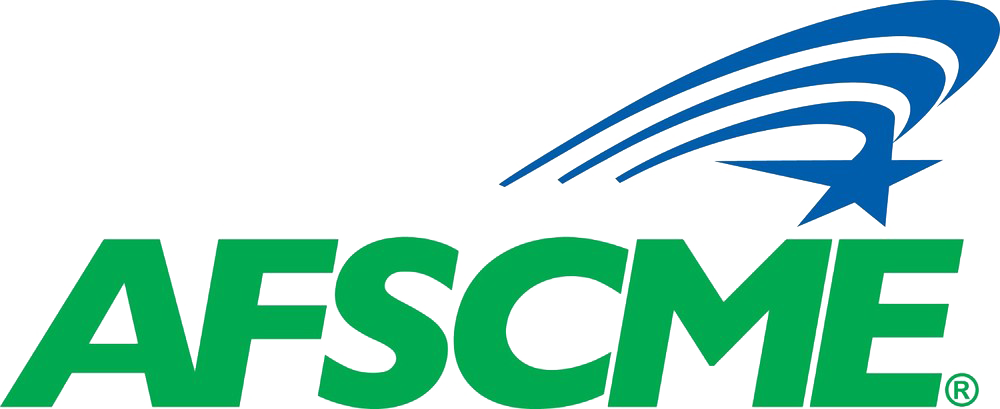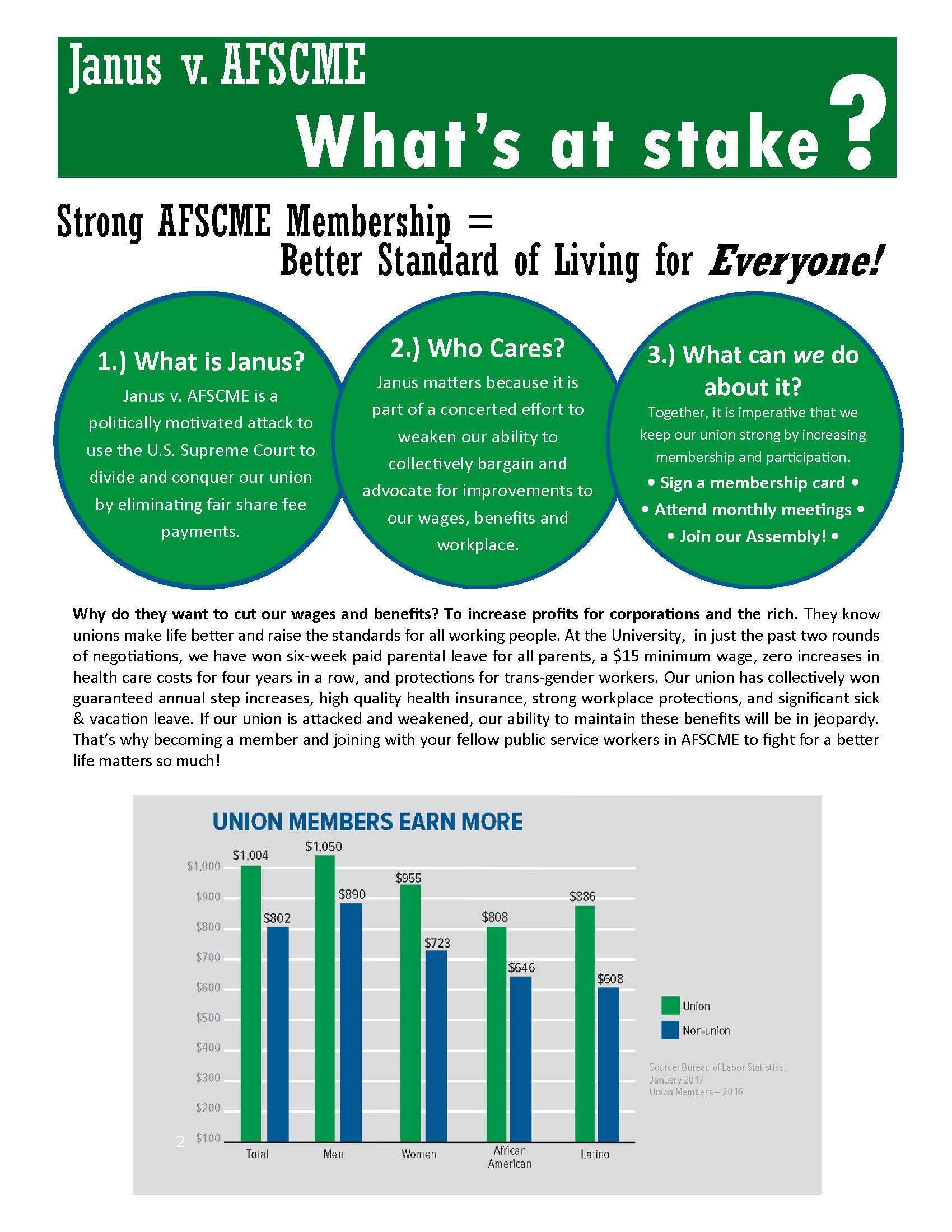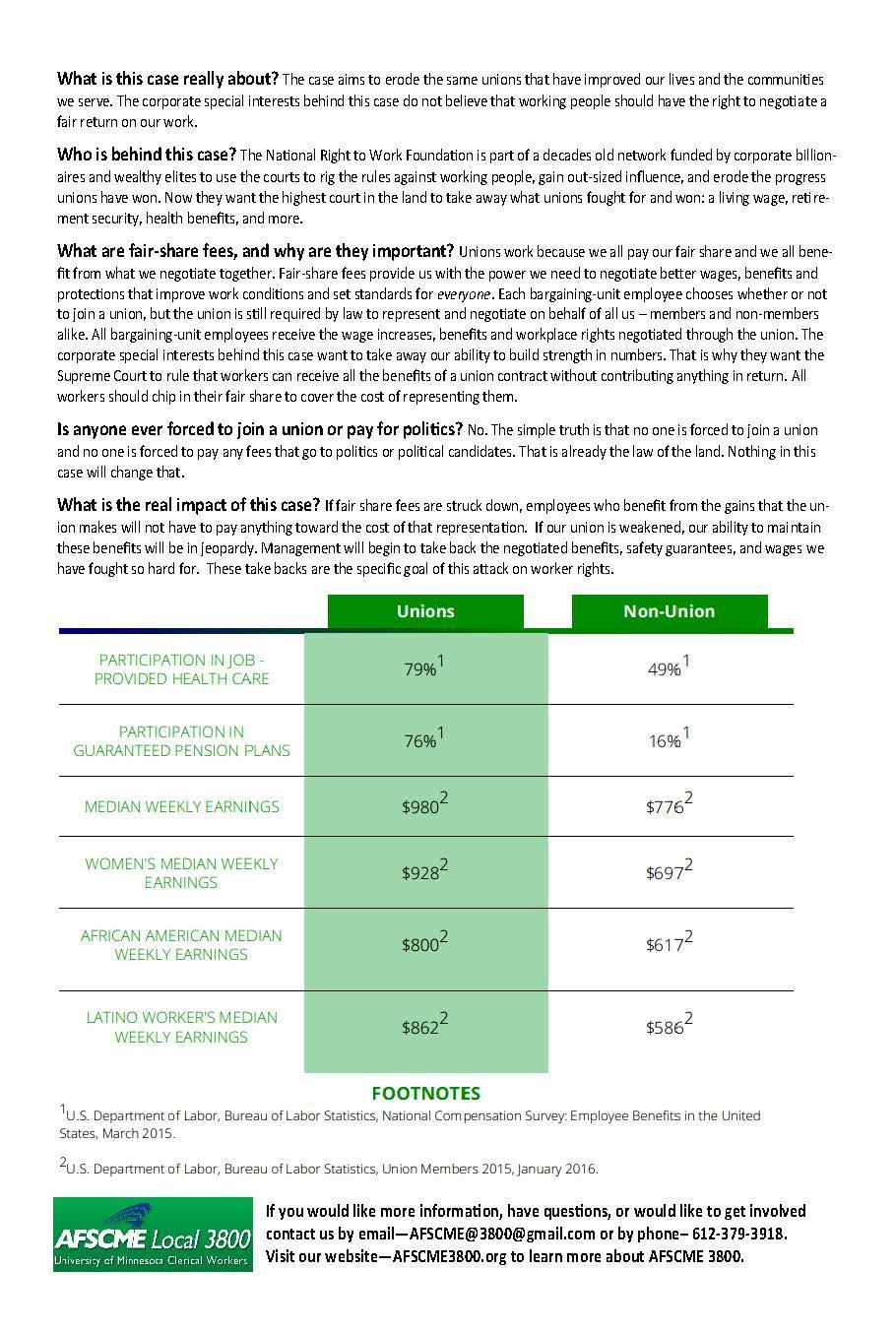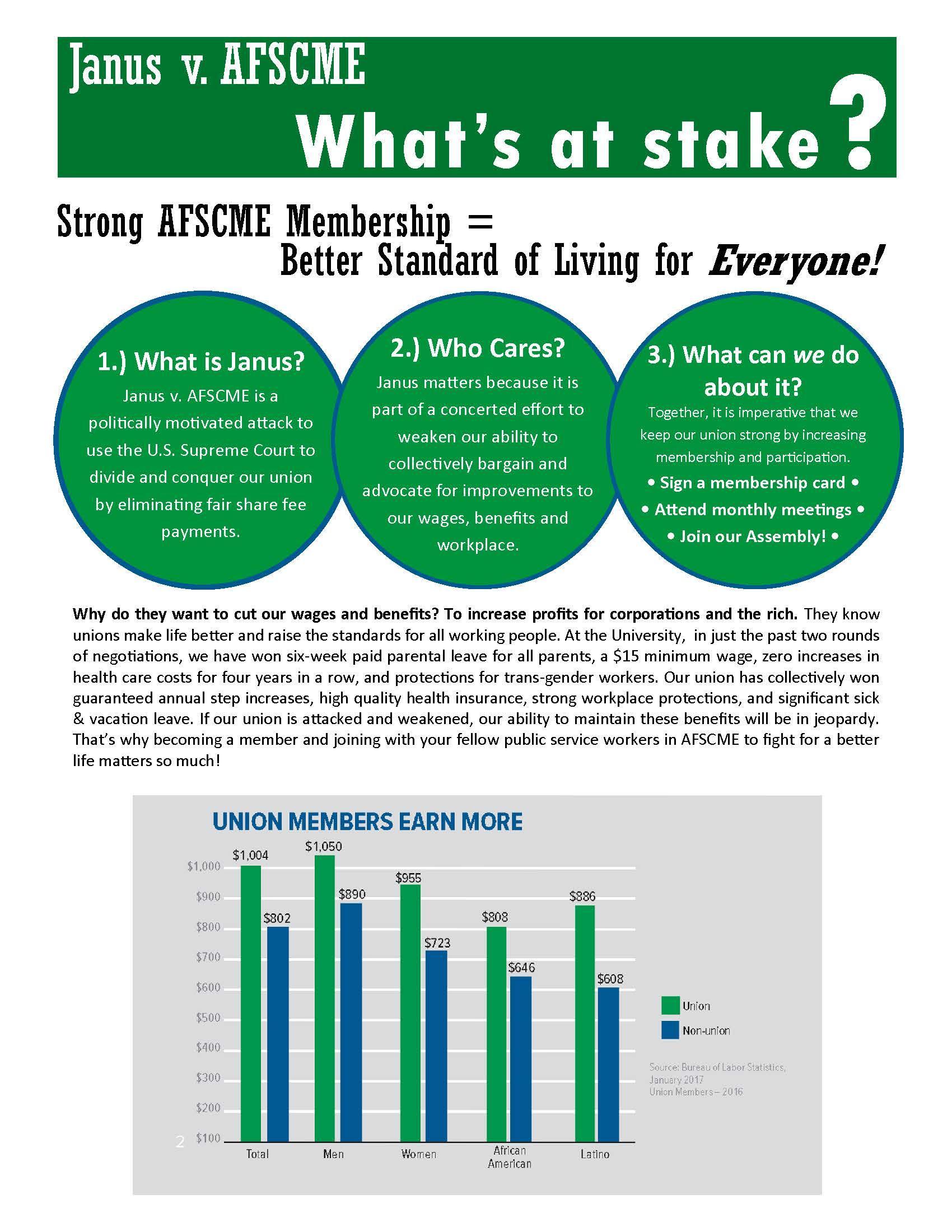Read The Atlantic Article from June 27, 2018: "The Supreme Court Wednesday dealt a huge blow to public-sector unions and the labor movement in general, ruling in Janus v. AFSCME that public employees do not have to pay fees to unions to cover the costs of collective bargaining."
1.) What is Janus? Janus v. AFSCME is a politically motivated attack to use the U.S. Supreme Court to divide and conquer our union by eliminating fair share fee payments.
2.) Who Cares? Janus matters because it is part of a concerted effort to weaken our ability to collectively bargain and advocate for improvements to our wages, benefits and workplace.
3.) What can we do about it? Together, it is imperative that we keep our union strong by increasing membership and participation.• Sign a membership card • Attend monthly meetings • Join our Assembly! •
Why do they want to cut our wages and benefits? To increase profits for corporations and the rich. They know unions make life better and raise the standards for all working people. At the University, in just the past two rounds of negotiations, we have won six-week paid parental leave for all parents, a $15 minimum wage, zero increases in health care costs for four years in a row, and protections for trans-gender workers. Our union has collectively won guaranteed annual step increases, high quality health insurance, strong workplace protections, and significant sick & vacation leave. If our union is attacked and weakened, our ability to maintain these benefits will be in jeopardy. That’s why becoming a member and joining with your fellow public service workers in AFSCME to fight for a better life matters so much!
Who is behind this case? The National Right to Work Foundation is part of a decades old network funded by corporate billion-aires and wealthy elites to use the courts to rig the rules against working people, gain out-sized influence, and erode the progress unions have won. Now they want the highest court in the land to take away what unions fought for and won: a living wage, retire-ment security, health benefits, and more.
Is anyone ever forced to join a union or pay for politics? No. The simple truth is that no one is forced to join a union and no one is forced to pay any fees that go to politics or political candidates. That is already the law of the land. Nothing in this case will change that.



